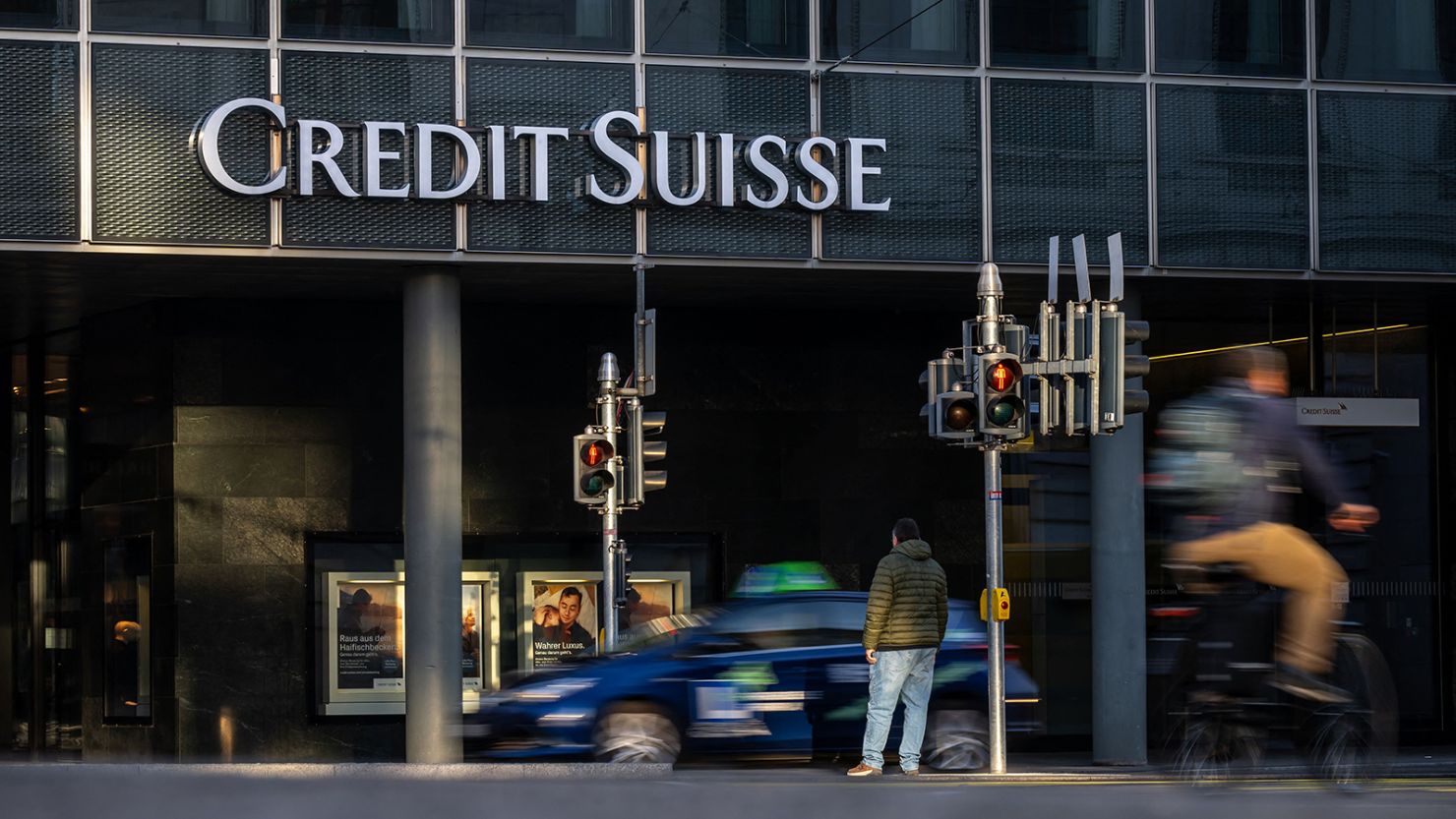Editor’s Note: A version of this story appeared in CNN Business’ Nightcap newsletter. To get it in your inbox, sign up for free, here.
Credit Suisse, the giant, 167-year-old European bank, was teetering on the brink of failure Wednesday, stoking anxieties about the health of the global financial system. (And frankly giving markets reporters whiplash as sentiment went from “holy-crap-sell” on Monday, to “everyone chill” on Tuesday, and back to freakout mode by Wednesday…)
After the bank’s largest single-day selloff ever, Credit Suisse leaders met with Swiss authorities to discuss options to stabilize the bank. Late in the Swiss day, the central bank and the nation’s financial market regulator issued joint statement saying they would provide a financial lifeline to the bank “if necessary,” citing its importance to the wider financial system.
All of that happened around the time Wall Street was getting ready to clock out. Stocks ended the day lower, dragged down by banks large and small. As of this writing, the financial world was in a state of limbo, waiting to see how the crisis at Credit Suisse plays out.
‘Systemically important’
It’s hard to overstate how big of a deal it would be for Credit Suisse — with its half-a-trillion dollars in assets and more than 50,000 employees around the world — to collapse.
The failure last week of Silicon Valley Bank and Signature, two much smaller regional lenders, shook investor confidence around the world. Credit Suisse, one the largest lenders in Europe, is “much more globally interconnected, with multiple subsidiaries outside Switzerland, including in the US,” wrote Andrew Kenningham, chief Europe economist at Capital Economics. “Credit Suisse is not just a Swiss problem but a global one.”
Credit Suisse is known as a “global systemically important bank,” (or “G-SIB,” as the cool kids call it). Once one of those mega-banks is in trouble, people start to wonder what’s going on with the system and speculate about who might be the next to fall.
Even with a financial lifeline from Swiss authorities, there are still plenty of risks and unknowns radiating out from Credit Suisse, keeping investors on edge.
Credit Suisse turmoil indicates the crisis has not been contained, Arthur Wilmarth, professor at the George Washington School of Law, told me.
“I think it was naive for most people to think that it might be contained just with a couple of regional banks, because clearly there are still shocks reverberating within our own banking system,” Wilmarth said. “And this would indicate that it could potentially spread to banks of a very large size.”
How are Credit Suisse and Silicon Valley Bank connected?
They’re not, technically. But herd psychology is very much a force in the fast-moving world of financial markets.
Credit Suisse is facing unrelated problems that have been festering for years and just happened to escalate at the same time that SVB and Signature had to be rescued by federal authorities.
Key quote: “Credit Suisse has been a slowing-moving car crash for years,” wrote Peter Boockvar, chief investment officer of Bleakley Financial Group. “But now today’s news of course is happening in the vortex of SVB.”
The result is a lot of fretting about the banking sector on both sides of the Atlantic.
BOTTOM LINE
The collapse of Silicon Valley Bank didn’t cause Credit Suisse to stumble, but it did put the Swiss bank under even more intense scrutiny. And it may have super-charged the selloff that brought Credit Suisse to its knees.
Meanwhile, European and US banks are dealing with similar macroeconomic environmental factors. After years of ultra-low (and in Europe’s case, even negative) interest rates, yields on government bonds including Treasuries have shot up, eroding the value of banks’ underlying assets.
“Today’s events show that there are numerous vulnerabilities of different sizes, degrees and locations in the US and global financial system,” said Better Markets CEO Dennis M. Kelleher. “These cascading events illustrate again that regulation and supervision of the largest financial institutions in the United States, and indeed the globe, continues to be insufficient, largely because of successful lobbying by the financial industry.”
Enjoying Nightcap? Sign up and you’ll get all of this, plus some other funny stuff we liked on the internet, in your inbox every night. (OK, most nights — we believe in a four-day work week around here.)






